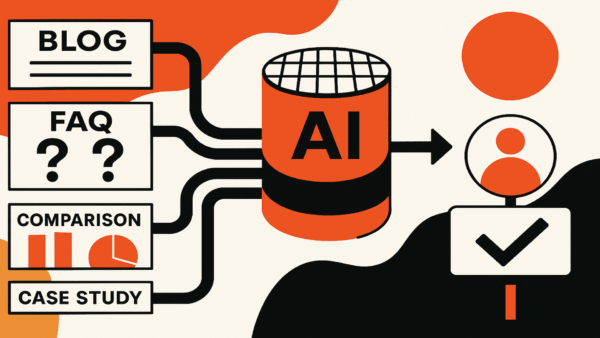Artificial intelligence is rapidly transforming the B2B landscape, and the buyer journey is evolving faster than most companies anticipated. With new tools, data streams, and automated decision-making systems, AI is reshaping how businesses discover vendors, evaluate solutions, and make purchasing decisions. These changes present tremendous opportunities—but also new challenges—for B2B organizations. To stay competitive, companies must understand how AI is altering buyer behavior and prepare their strategies, teams, and technology for the next era of B2B commerce. Forward-looking businesses studying How AI Will Reshape the B2B Buyer Journey in the Next 3 Years recognize that preparing now for predictive insights, personalized experiences, and data-driven decision-making will determine their competitive edge.
Expect Buyers To Rely More On Predictive Insights
Predictive intelligence is one of the biggest changes that AI offers. Instead of relying solely on research and sales conversations, B2B buyers will increasingly use AI tools that recommend solutions, estimate ROI, compare vendors, and highlight risks. This creates a journey where buyers are informed earlier, faster, and with more data than ever before. To prepare, companies must ensure their digital information is accurate, transparent, and easily analyzed by AI systems. Vendors that provide clear pricing models, measurable results, and structured data will be favored by AI-powered recommendation engines.
Prepare For Hyper Personalized Buyer Expectations
AI makes it possible for buyers to receive highly targeted content, tailored solutions, and personalized experiences based on their industry, company size, behavior patterns, and business challenges. B2B companies must be ready to deliver this level of personalization. This means developing dynamic content libraries, behavior-based email campaigns, customizable product demos, and AI-driven chat solutions that adapt to each visitor’s needs. Businesses that continue using generic messaging or one-size-fits-all sales approaches may struggle to keep up as personalized experiences become the B2B norm.
Understand That Buyers Will Complete More Of The Journey Independently
As AI tools improve research and evaluation capabilities, B2B buyers will engage with sales teams later in the process. Automated comparison tools, smart search engines, and conversational AI assistants will empower buyers to self-educate and narrow down options long before they reach out. Companies must adapt by providing detailed, easy-to-consume content throughout their digital ecosystem—from websites and resource hubs to social platforms and video channels. The businesses that educate best will be the ones buyers trust most when they are ready to decide.
Prepare For AI-Driven Decision Committees
AI will influence B2B decisions at the organizational level as well. Procurement departments, finance teams, and operations leaders will increasingly use AI platforms to validate vendor credibility, predict costs, assess risks, and evaluate long-term value. This creates a more data-informed decision committee. To stay competitive, vendors must align their offerings with metrics that AI tools can interpret. Documented results, case studies with measurable outcomes, and data-backed claims will become essential assets.
Invest In AI-Enabled Customer Experience Tools
AI-powered chatbots, virtual assistants, automated service portals, and smart ticketing systems are becoming expected components of modern B2B experiences. These tools create faster responses, reduce friction, and support global buyers in different time zones. Companies should prepare by investing in tools that handle routine questions, provide product guidance, and assist with onboarding. This not only improves service quality but also frees human teams to focus on complex, high-value interactions.
Strengthen Data Quality And Integration
AI’s effectiveness depends on data, and poor data will lead to poor predictions, poor personalization, and poor buyer experiences. Preparing for an AI-driven buyer journey means improving data hygiene, integrating systems, and ensuring information flow across CRM platforms, marketing automation tools, customer service databases, and analytics systems. Companies with clean, connected data will be able to leverage AI more successfully and deliver smoother customer journeys.
Empower Sales Teams With AI Tools
AI is not replacing sales—it is transforming it. Sales teams must be ready to work with AI platforms that provide lead scoring, buyer intent signals, content recommendations, and personalized outreach guidance. Salespeople must be trained to use AI technologies efficiently if they want to remain competitive in a market where customers demand accuracy, speed, and relevance.
Conclusion
AI is reshaping the B2B buyer journey in profound ways, from self-guided research and predictive evaluations to personalized content and intelligent decision-making. Companies that prepare now—by improving data quality, adopting AI tools, enhancing digital content, and strengthening buyer experience—will be positioned for long-term success. Those who adapt quickly will earn the trust of a new generation of AI empowered buyers and compete effectively in an increasingly automated B2B landscape.

